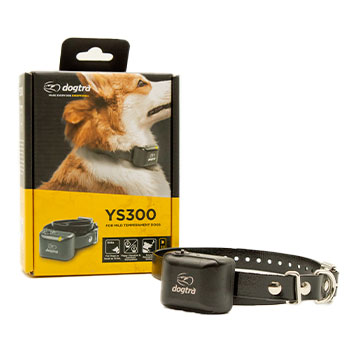April 19, 2011
We adopted a 10 year old, mal-treated Dob. He came with some problems; can you give some advice?
Full Question:
My husband and I have adopted a Doberman from our neighbor who passed away a couple months ago. When we got Duke he was 10 lbs underweight and had every parasite I could think of. He also had several sores from over licking and lying in his own feces. He is about 10 years old. Now he is minus the parasites and 10 lbs heavier and a lot healthier. He is a happy boy but shows some signs of aggression. I know he was severely neglected (starved and maybe beaten). He is, for lack of a better word, socially retarded. He probably has had no socializing in his life, by his violent and mostly fearful reaction to the vet I assume he has never been there either. I don't think he has a mean bone in his body and aside from his reaction to the vet (of course I would probably object to an anal probe myself). A few times we have tried to lift him into the truck or into the bathtub and he has been great. I think it hurts him to be lifted. So my husband and I were able to write that off, and put a muzzle on him when we needed to do any lifting or washing. But recently I caught him chewing on something and went over to investigate. He had just been punished for chewing some clothing so he was probably already on edge. I tried to get him to drop it and he growled. I backed off for a minute and my husband came over to see what was happening. Then I grabbed him by the collar and told him to drop it. He did and even backed off a step. When I reached out to grab the milk jug lid he bit he me several times. My husband hit him hard enough to toss him across the room and then he was put in the laundry room. He has never been possessive about his food or any toys. However, he will not tolerate being pushed down or lifted. So we don't. He is well enough to get into the truck and the bathtub by himself now and doesn't need assistance. I have read some of your articles and kinda have an idea what to do. But, he is really old for a Doberman (as far as I know they only live to 10-12 years) and I want to know if there is anything else I can do. I really care for him and feel a responsibility to care for him. But, it is hard for me if I don't have his trust, and right now he doesn't have mine. I am afraid he will react this way with some of our friends although he never has in the past, he is always offering an ear to be scratched and a happy tail wag. What do you think?Jessica

 Ed's Answer:
Ed's Answer:
If this were a younger dog I would probably offer different advice. I have sympathy for this dog’s earlier life. It's my opinion that, (if you like this dog), he needs to have a little slack.
I would not push the issue with his food. Why start a fight about taking food away? I would feed the dog, pick the food up after 30 minutes and not put it down until the next day. Then there is no fight over food. If the dog lies by the food bowl and guards it, that's a different issue. Then he needs to have your husband correct the snot out of him, but my guess is this is not the case. I would get a dog crate and use it on this dog. When people come over I would put him in the dog crate. This eliminates the chance of an accidental bite. Why even take a chance?
I would get an electric collar and deal with the chewing that way. This will allow you to correct without having to physically fight the dog. Part of the chewing issue is probably a neurotic carry over habit from his earlier life. I would approach it as if the dog was a puppy. Put a lot of things around for the dog to chew. Get some big raw hides; an Extra Large Kong or two, even large bones (no soft chewy toys).
If the chewing takes place when you are gone, crate the dog with a bone. Leave the TV or radio on. The dog has some dominance issues. I have articles on this on my web site, read them. A dog that does not want to DOWN has a dominance issue. There is no such thing as not being able to train an old dog. In this case, he has proven that he will bite you. Use a muzzle and a prong collar to train him. My video explains the process in a logical step by step method.
On an old dog like this you need to be realistic in what you expect to train him. In my opinion, COME, DOWN, STAY and GET IN YOUR CRATE are all that is needed.
The same thing can be accomplished with electric collars, but in this case people need to not only learn to properly obedience train, they also have to learn how to train with an electric collar. (We sell videos on how to do this).
I would not push the issue with his food. Why start a fight about taking food away? I would feed the dog, pick the food up after 30 minutes and not put it down until the next day. Then there is no fight over food. If the dog lies by the food bowl and guards it, that's a different issue. Then he needs to have your husband correct the snot out of him, but my guess is this is not the case. I would get a dog crate and use it on this dog. When people come over I would put him in the dog crate. This eliminates the chance of an accidental bite. Why even take a chance?
I would get an electric collar and deal with the chewing that way. This will allow you to correct without having to physically fight the dog. Part of the chewing issue is probably a neurotic carry over habit from his earlier life. I would approach it as if the dog was a puppy. Put a lot of things around for the dog to chew. Get some big raw hides; an Extra Large Kong or two, even large bones (no soft chewy toys).
If the chewing takes place when you are gone, crate the dog with a bone. Leave the TV or radio on. The dog has some dominance issues. I have articles on this on my web site, read them. A dog that does not want to DOWN has a dominance issue. There is no such thing as not being able to train an old dog. In this case, he has proven that he will bite you. Use a muzzle and a prong collar to train him. My video explains the process in a logical step by step method.
On an old dog like this you need to be realistic in what you expect to train him. In my opinion, COME, DOWN, STAY and GET IN YOUR CRATE are all that is needed.
The same thing can be accomplished with electric collars, but in this case people need to not only learn to properly obedience train, they also have to learn how to train with an electric collar. (We sell videos on how to do this).
100% (2 out of 2)
respondents found this answer helpful


Can't find what you're looking for?








